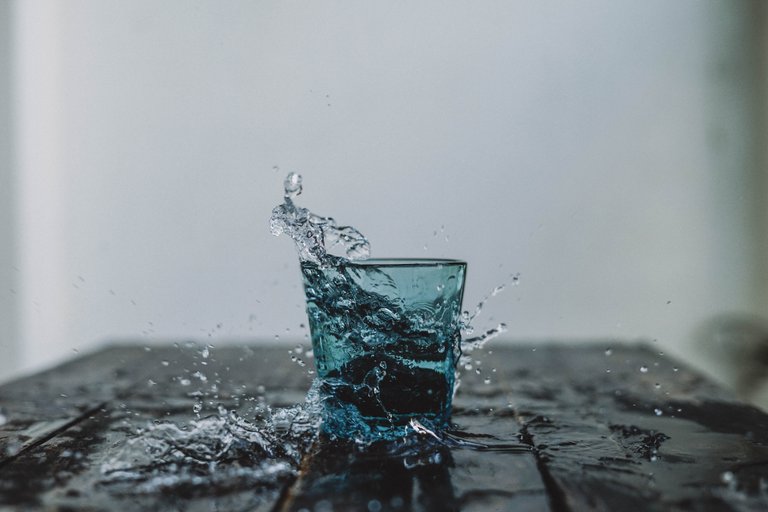 Source Image: Chinh Le Duc Unsplash
Source Image: Chinh Le Duc Unsplash
Currently in our society, there are endless methods for good health and treatments to stay healthy, and around this, many myths about health have been created. One of these myths is about how to stay hydrated. Obviously, there are several studies on this and several institutions that support various reports and essays.
There are different opinions among experts about the recommendation to drink 8 glasses of water a day. The recommendation to drink 8 glasses of water a day is based on the idea of keeping the body adequately hydrated and is supported by various health organizations. However, actual water requirements may vary depending on various factors such as age, gender, level of physical activity, and geographical location.
Although some sources such as the Mayo Clinic suggest drinking 8 glasses of water a day. On their website, they suggest: "The 8x8 rule - Although the daily recommended amount of water can vary depending on activity level, age, sex and other factors, the traditional 8x8 rule states that you should drink eight 8-ounce glasses of water (about 2 liters) per day".
However, other studies have shown that this recommendation does not have a solid scientific basis and that the amount of necessary water can vary from person to person. Therefore, it is important to speak with a healthcare professional to know the appropriate amount of water that should be consumed daily according to each person and their specific needs.
The body is considered to be adequately hydrated when the body fluids lost through sweating, urination, or respiration have been replaced and when the levels of water in the body are sufficient to maintain the proper functioning of organs and systems. The amount of water needed for adequate hydration can vary depending on various factors such as age, gender, level of physical activity, geographical location and weather conditions. Therefore, it is recommended to maintain adequate fluid intake throughout the day.
The ideal amount of water intake depends on several factors, but generally, men are recommended to consume around 3.7 liters and women around 2.7 liters of water per day, including fluids and food. However, this is just a general guide and the amount of water needed may vary for each individual depending on their specific needs.
Some foods can provide water to the body, although this can vary depending on the foods and the amount consumed. For example, watermelon and cucumber have a high water content and can contribute to hydration of the body. Other foods, such as soups and broths, can also contain a significant amount of water. However, if adequate hydration is desired, it is important to drink sufficient liquids throughout the day, rather than relying solely on food for water intake.
For fluid intake, it is important to consider both the water consumed and the foods that contain it, as water can be obtained from both sources. As a general rule, women should consume around 2 liters per day and men 2.7 liters of total fluid intake. However, this is a generalization, and the reality is that each body is different, and individual and external factors influence this.
This is a list of some foods that provide water to the body. They are those that contain a large amount of water in their composition. In this list, I show them in the proportion of water per 100 grams of consumption; Some of them are:
- Watermelon (93ml per 100gr)
- Cucumber (95ml per 100gr)
- Lettuce (95ml per 100gr)
- Tomato (94ml per 100gr)
- Pumpkin (93ml per 100gr)
- Carrot (88ml per 100gr)
- Broccoli (89ml per 100gr)
- Orange (87ml per 100gr)
- Pineapple (87ml per 100gr)
- Grapes (81ml per 100gr)
These foods are an excellent source of hydration and can help keep you hydrated throughout the day. It is important to remember that in addition to eating water-providing foods, it is also necessary to drink enough water to stay hydrated.
sources: clinic mayo; NHLBI
Hydratation is super necessary, we are more than 80% water
Posted using SoMee
> The body is considered to be adequately hydrated when the body fluids lost through sweating, urination, or respiration have been replaced and when the levels of water in the body are sufficient to maintain the proper functioning of organs and systems.
Years ago, on my gout website, I realized the importance of adequate hydration. Because for gout sufferers, poor hydration increases the concentration of uric acid. Which is a Very Bad Thing!
During my first decade of gout, I used to think there was a target for daily fluid intake. But as you say, the amount of water we need to drink or eat depends on many, changing factors.
Later, I learned that the best approach is to consider urine colour. Which should be the colour of pale straw. I.e., not completely clear. As that might indicate over hydration that might harm the kidneys.
Source: Mentes, Janet. "Oral hydration in older adults: greater awareness is needed in preventing, recognizing, and treating dehydration." AJN The American Journal of Nursing 106, no. 6 (2006): 40-49.
> Urine that is the color of pale straw usually indicates a normal hydration status; as urine darkens, poorer hydration may be indicated (after the effect of discoloration by food or medications has been ruled out).